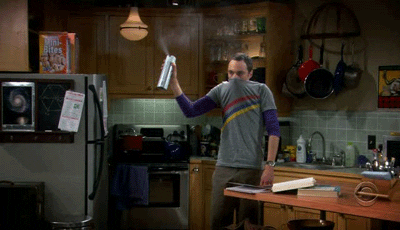
The pandemic may seem like it’s behind us as millions of Americans are vaccinated across the country. However, COVID-19 and it’s variants, are still around. Being up to date on your COVID-19 vaccines before the coming or returning to campus is one of the easiest ways to keep yourself and others safe.
The first two weeks back on campus are most critical as we try to mitigate the spread of COVID-19. Thousands of students are coming and returning to Winona State from other states and countries across the world. Not everyone has had the chance to get vaccinated or are up to date, and variants continue to stay present in the US.
The best way to keep yourself and others safe from COVID-19 is getting vaccinated. Learn more about on-campus vaccine opportunities by following @WSUHealth on social media or check out or blog on COVID Vaccine Finder.
Think back to last year and how you prepared for your senior year of high school or freshman year of college. What has the pandemic truly taught us and how can we use that to our advantage to keep COVID-19 away from our campus?
1. Continue to Wear a Mask
Masks are an effective tool at limiting and preventing the spread of COVID-19. Although there is not a mask mandate currently in place, there are some times where you should wear one to keep yourself and others safe:
- When COVID-19 caseloads are high, you should consider wearing a mask in public and when using public transportation.
- If you are at high-risk for severe illness, you should consider wearing a mask.
- When you are quarantining or isolating.
- In spaces where masks are still required, such as clinics and medical facilities.
Wearing a mask is especially important at the first sign of any upper respiratory illnesses (strep throat, colds, and flu) this fall. Feeling under the weather or notice that some of your peers or classmates are ill? Wear a mask to keep yourself and others safe from upper respiratory illnesses.

2. Disinfect Your Space Often
Sheldon Cooper from The Big Bang theory was a trailblazer of COVID-19 clean before the pandemic started. Remember to disinfect frequently touched surface areas often with an EPA approved product that disinfects against COVID-19.
If you become ill with any illness–remember to disinfect your space daily, especially if you are living with others.
3. Remember to Wash & Sanitize Your Hands Often
Washing and sanitizing your hands often can help prevent from getting germs that are on your hands into your system. We all know to sing our “ABC’s” or washing your hands with soap and water is an effective way to keep germs away. Continue to use hand sanitizing stations around campus and keep a hand sanitizer handy.
Here’s a list of key times to wash your hands:
- Before and after eating
- After using the restroom
- After using public transportation
- Before and after pumping gas or paying with card
- While traveling
- Once returning home from running errands, attending classes, or getting home from work

4. Make an Illness Plan
In case you become ill, gather your health information, insurance cards, and write down important accounts and phone numbers. Compile an emergency contacts list of family, friends, healthcare providers, teachers, & employers. Make sure to include resources for food and other essential supplies.
If you live alone, you may want to arrange regular check-ins with a friend or relative. You may even want to make arrangements with a friend or roommate to help get you food while you’re ill.
It’s helpful to keep a log of your symptoms (such as recording your temperature) incase illness persists.

5. Call Ask-A-Nurse for Help
If you’re feeling ill–and it don’t feel good, who you are you gonna call? Not Ghostbusters–but our on-campus support Ask-A-Nurse Message Line is here to save the day with any of your COVID-19 and regular health care needs.
If you’re all alone, pick up the phone and call 507.457.2292 or email as*******@****na.edu. Pro Tip: Save Ask-A-Nurse as a contact in your phone for quick and easy access.
Self-Report When You're Feeling Ill
Fill out the self-report form at the first sign of any illness.
6. Assemble a COVID-19 Care Kit
You’ll want to have a kit handy in case you need to treat not only minor injuries at home, but also to avoid trips to the pharmacy and clinic. Be mindful of the symptoms of COVID-19 incase any develop. Here’s what we recommend packing:
Care Kit
Cleaning Supplies
- Disinfectant Wipes
- Disinfectant Spray
- Laundry Detergent
- Soap
- Small Bucket
- Sponges or Rags for Cleaning
- Gloves
- Paper Towels
- Toilet Paper
- Kleenex
- Garbage Bags
Medicine
- Daily Vitamins (Vitamin C)
- Pain Relievers
- Prescription Medication
- Cough Drops
- Cough Syrup
- General Cold & Flu Medicine
- Allergy Medication
- Chloraseptic Spray
- Hydrocortisone Cream
- Triple Antibiotic Ointment
- Antifungal Cream
- Anti-Diarrheal Medication
- Saline Nasal Spray
- Eye Drops
- Tums
Household Essentials
- Bed Sheets
- Towels
- Disposable Utensils & Dishes
- Water Bottle/Water Filters
- Notebook
Groceries
- Healthy Ready-Made Food & Meals
- Soup
- Crackers
- Water
- Electrolytes
- Juices
- Teas
Pharmacy
- Thermometer
- Tweezers/Nail Clippers
- Hand Sanitizer
- Rubbing Alcohol
- Band Aids & Other Bandages/Gauze
- Cotton Balls
- Heating Pad
- Cold Pack
- Chapstick
- Lotion
- Sunscreen SPF 30
- Bug Spray
Although chances of contracting COVID-19 this year are lower compared to last, the pandemic has taught us that it’s important to prepare for any and all illnesses you may have while attending school at Winona State. We want you healthy & #WarriorStrong!